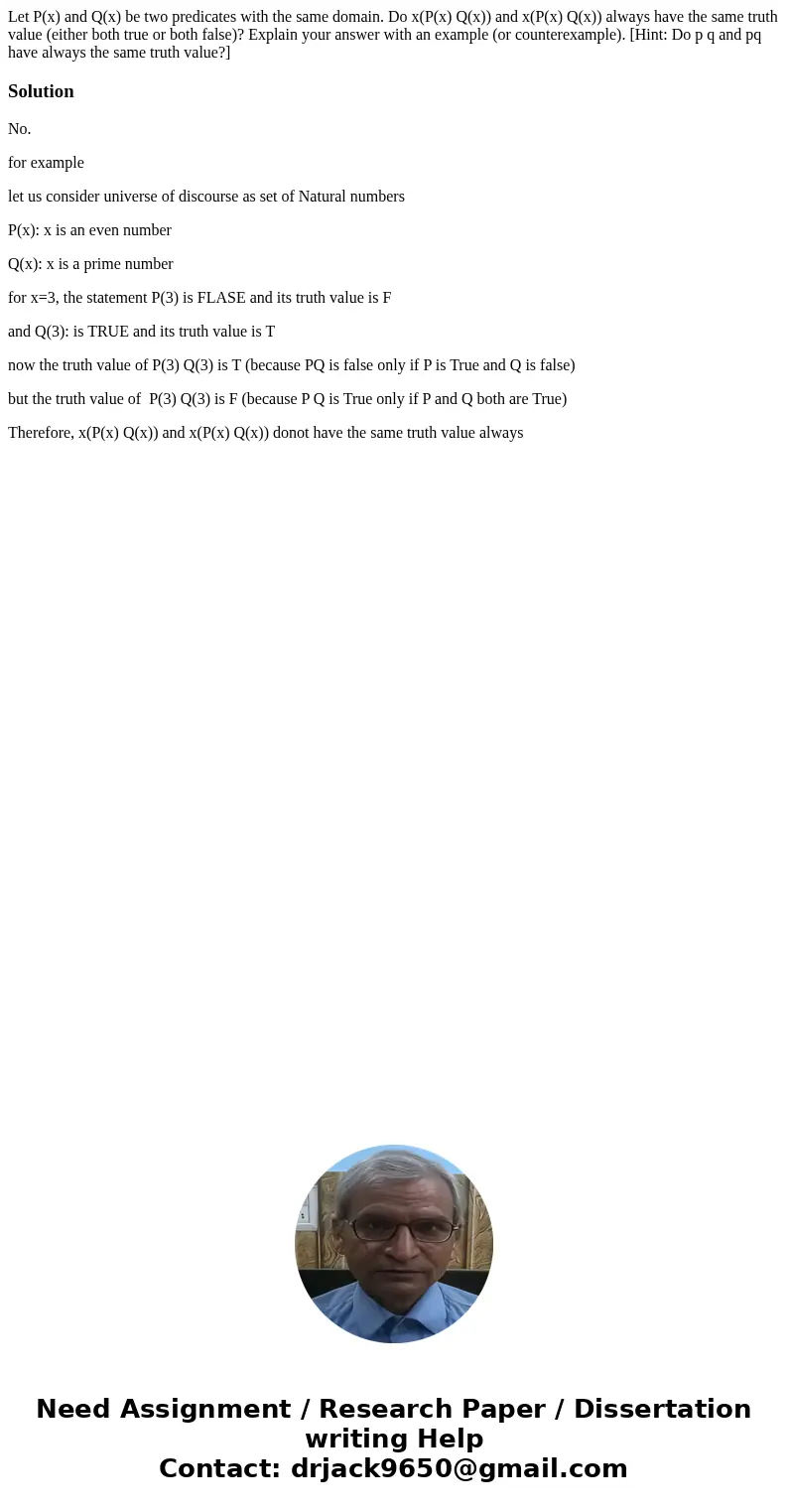Let Px and Qx be two predicates with the same domain Do xPx
Let P(x) and Q(x) be two predicates with the same domain. Do x(P(x) Q(x)) and x(P(x) Q(x)) always have the same truth value (either both true or both false)? Explain your answer with an example (or counterexample). [Hint: Do p q and pq have always the same truth value?]
Solution
No.
for example
let us consider universe of discourse as set of Natural numbers
P(x): x is an even number
Q(x): x is a prime number
for x=3, the statement P(3) is FLASE and its truth value is F
and Q(3): is TRUE and its truth value is T
now the truth value of P(3) Q(3) is T (because PQ is false only if P is True and Q is false)
but the truth value of P(3) Q(3) is F (because P Q is True only if P and Q both are True)
Therefore, x(P(x) Q(x)) and x(P(x) Q(x)) donot have the same truth value always

 Homework Sourse
Homework Sourse